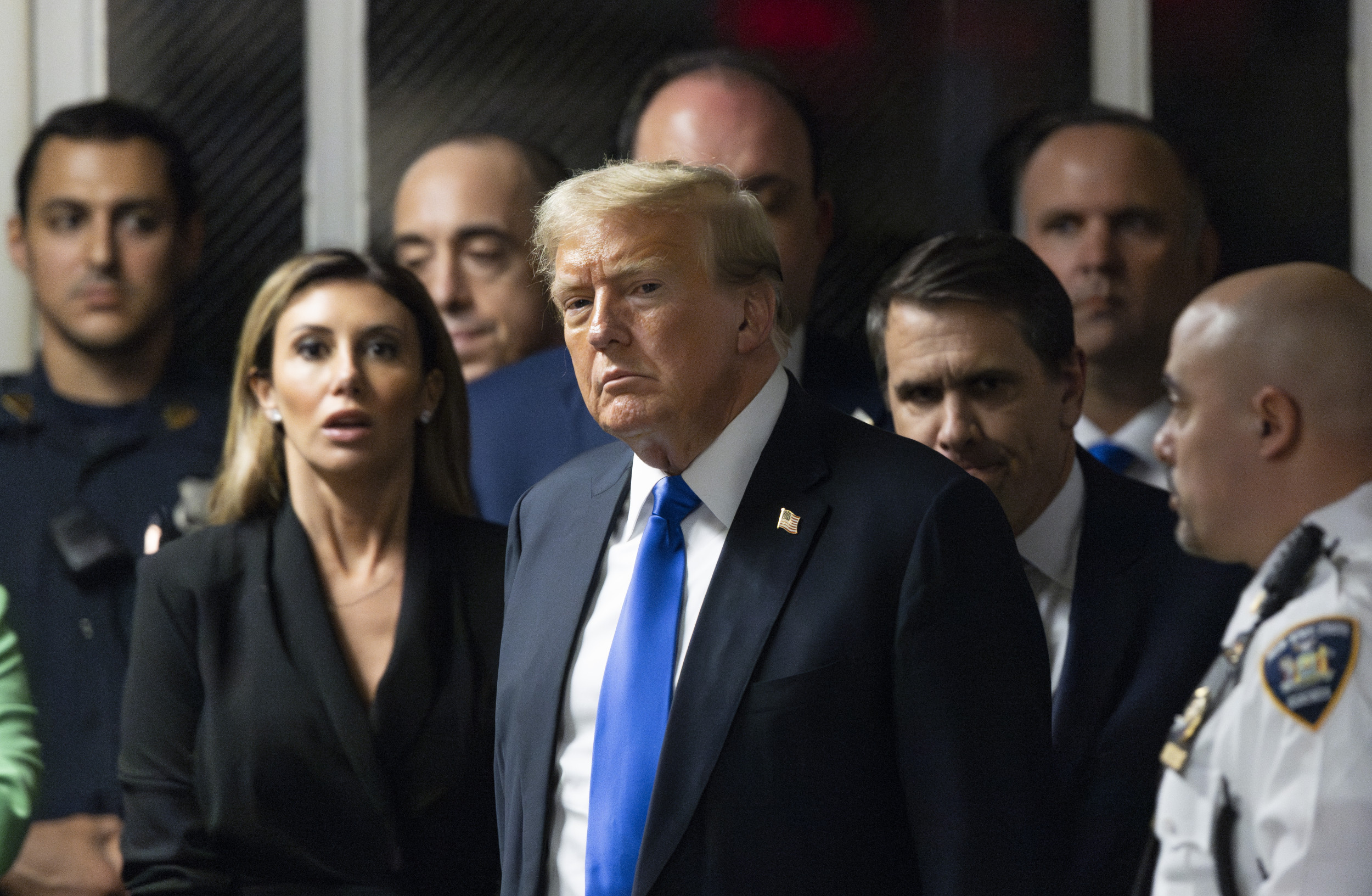An Iranian opposition coalition has called on President Joe Biden not to recognize the likely winner of the Islamic Republic's presidential election, who it says is linked to a series of human-rights abuses.
The vote comes at a crucial time in the region, with President Joe Biden keen to revive the 2015 nuclear deal with Tehran, known as the Joint Comprehensive Plan of Action (JCPOA). Biden's predecessor, Donald Trump, withdrew the U.S. from the agreement and Iran's economy has been struggling under the weight of sanctions.
Polls suggest that judiciary head Ebrahim Raisi, 60, a Shia cleric and hand-picked ally of Supreme Leader Ayatollah Ali Khamenei, is almost certain to succeed two-term President Hassan Rouhani after Iranians vote on Friday.
There are serious concerns about the human rights record of Raisi. The U.S. Treasury linked him to a crackdown on Iran's Green Movement protests in 2009, while rights groups point to his role in the so-called death panels of 1988, which led to the executions of thousands of people at the end of the Iran-Iraq war.
The candidates were chosen by the Khamenei-controlled Guardian Council, which rejected all but seven of the almost 600 contenders.
Ali Safavi, who is a member of the foreign affairs committee of the National Council of Resistance of Iran (NCRI), said the election was "totally illegitimate" and didn't reflect the will of the Iranian people.
"The Biden administration should condemn the results—after all, they condemned the Syrian election. This is far worse than the Syrian election," he said.
"One of the main planks of the Biden administration was respect for human rights. He said he would put human rights front and center. Well, here is a chance for him to show whether he is going to deliver on his promise," Safavi told Newsweek.
Resistance units of the People's Mujahedin of Iran (MEK), the main organization within the NCRI, have been active throughout the country, with activists risking arrest by ripping up Raisi posters and putting up messages calling for an election boycott.
While turnout for the last election in 2017 was 73 percent, a survey by the state-backed Iranian Students Polling Agency suggested that this time the figure could be as low as 42 percent, the lowest since the 1979 revolution, the BBC reported.
Raisi was born into a clerical family in the city of Mashhad in the country's northeast and he studied at the Qom seminary from the age of 15, Radio Free Europe reported.
After the 1979 Islamic Revolution, he became prosecutor-general of the city of Karaj, outside Tehran, aged 20. He moved to the capital in 1985 and was appointed deputy prosecutor and later as Tehran's chief prosecutor. He also served as deputy judiciary chief and prosecutor-general.
He lost the 2017 election to the more moderate Rouhani, and this time Raisi has presented himself as someone who will fight corruption and tackle the country's economic woes, which have been exacerbated by sanctions and the coronavirus pandemic.
Khamenei is the ultimate authority on Iran's military and nuclear program, but the president controls domestic matters and is the public face of the country.
Seeking an End to Sanctions
Raisi has said in presidential debates he wanted a return to the nuclear deal under which Iran limited its enrichment of uranium in exchange for the lifting of economic sanctions, the Associated Press reported.
However, Safavi said a deal on the JCPOA, currently being negotiated in Vienna, and a lifting of sanctions would do little to help ordinary Iranians.
"The money that the regime gets from lifting the sanctions doesn't trickle to the poor and the homeless and the hungry—it goes into the coffers of the regime to spend on a missile program."
"The notion that somehow reaching a deal on the JCPOA, which was flawed to begin with, would be the beginning of discussion on other issues, I think, is a fallacy," Safavi told Newsweek.
"The case in point is the Obama administration, they kept saying, 'Once we reach an agreement on the nuclear program, we will address Iran's other malign activities. None of that happened."
"Any new agreement with Iran is the end point not the starting point," he added.
A U.S. State Department spokesman told Newsweek in a statement: "Iranians should be allowed to exercise their right to choose their own leaders in free and fair elections."

Update 6/18/21, 1:15 p.m. ET: This story was updated to add a statement to Newsweek from the U.S. State Department. The abbreviation NCRI has also been corrected.
Uncommon Knowledge
Newsweek is committed to challenging conventional wisdom and finding connections in the search for common ground.
Newsweek is committed to challenging conventional wisdom and finding connections in the search for common ground.
About the writer
Brendan Cole is a Newsweek Senior News Reporter based in London, UK. His focus is Russia and Ukraine, in particular ... Read more





